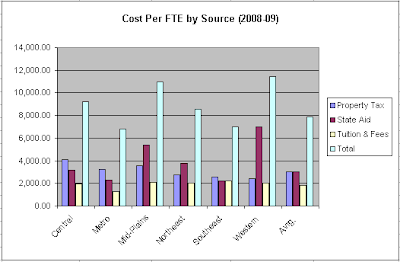Working on ...
I envy those people at a position that can carry out ideas and I am glad that they carry out those ideas.I wonder if higher education people notice that tests are associated with these courses which more or less call for a 'comparable' score for all institutions - just like what Spellings' committee like to do. The difference is that it hides under the funding. One thing is clear is that the feeling of the necessity of accountability in the higher ed is universal. As the higher ed community continue to resist to changes.
A lot of these are moving toward my opinions expressed in the past:
The role of the instructor will change. Institutions will end up charging for just the services they provided. Evaluation will be measured consistently. Transfer of credit will based on evaluations instead of the reputation/creditation of the transferring institution.
I have to admit the wisdom of the Ombama administration in tackling this from the community college level - courses at this level are better defined than the higher level courses where the contents can vary greatly.
The success of this proposal will level the playground, lower the price of a degree and given chances to everyone - which restore the true equality - the equal CHANCE of sucess but not the equal fruit for all. The restore of the true equality could eventually restore the sense of responsibility to our citizen. It is, however, worth to promote the sense of responsibility at the same time. Since for these kind of offer to work, students have to be self-responsible and motivated. They will have to want to pursue knowledge and initiate the request of help from faculities.
Quite some ideas that match mine.


